Meet the 2025 kanthari course participants
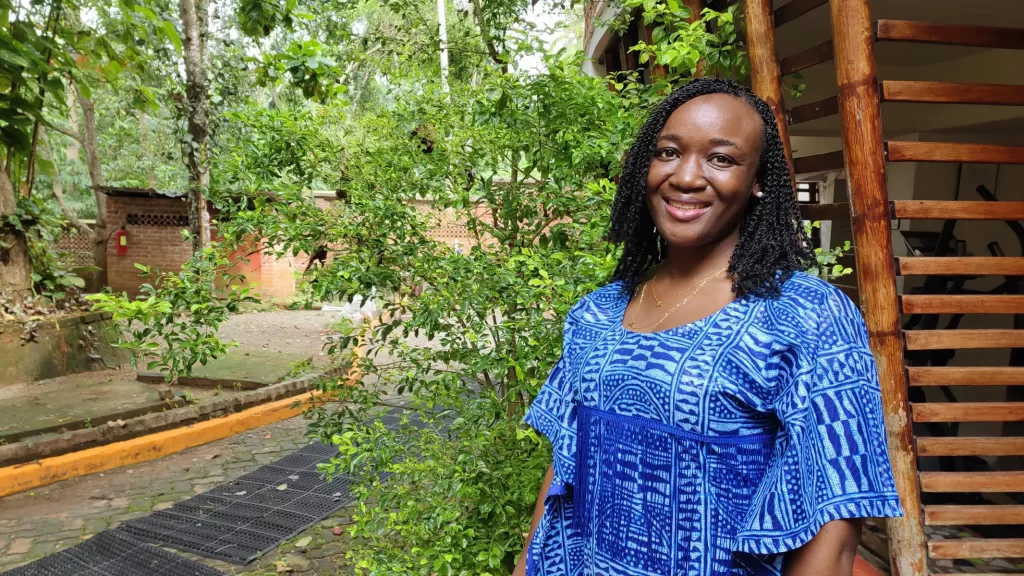
Adelaide Bih – Cameroon – 31
Healthcare access and affordability for conflict victims and low-income persons.
Driven by personal displacement and witnessing a death due to lack of funds for treatment, Adelaide founded the African Initiative for Health and Research Promotion (AIHRP). Her solution provides free/ subsidized healthcare services, health education, advocacy, and counseling to bridge healthcare gaps for those in dire need.
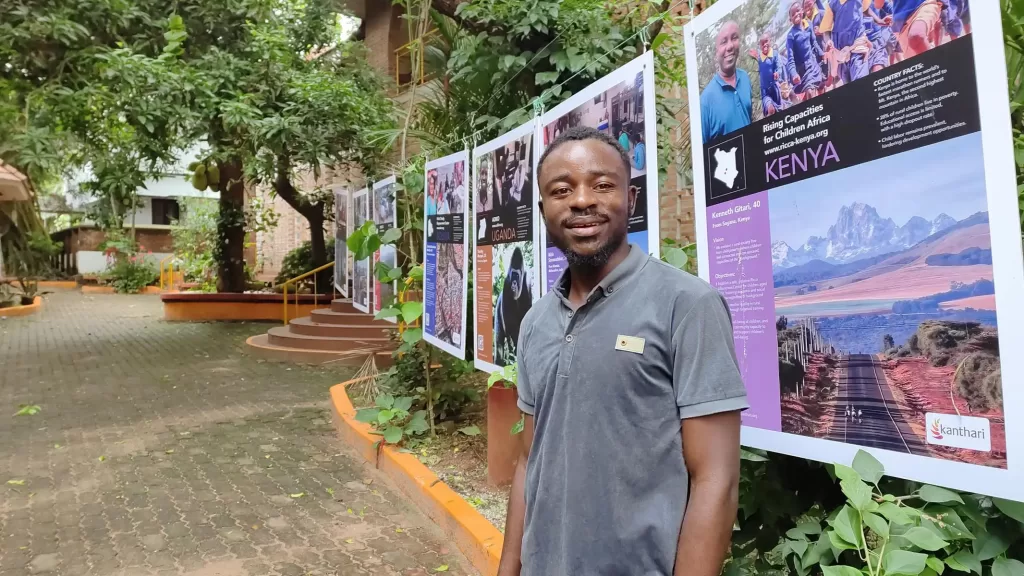
Alfred Ngulo – Tanzania – 27
Malaria prevention and treatment.
Having suffered debilitating malaria affecting his studies, Alfred was driven to find a solution. His project develops and distributes organic mosquito repellent products and integrates AI technology for diagnosis and medication reminders to significantly reduce malaria incidence and enhance health awareness.
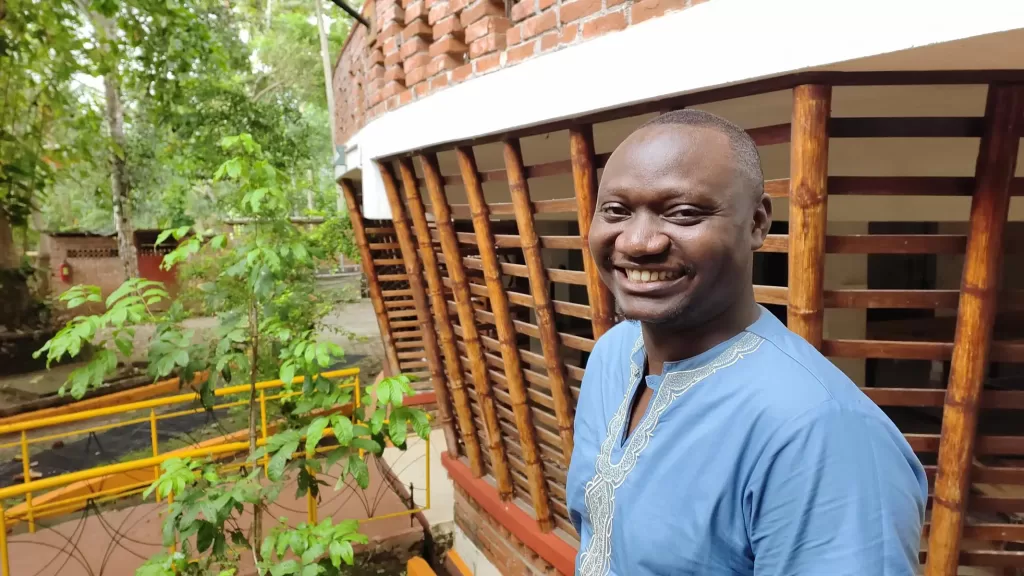
Alick Mandandi – Zambia – 33
Hypertension and diabetes management among retired men in rural communities.
Witnessing his father’s struggle with these conditions deeply impacted Alick’s perspective and highlighted the significant gaps in support and care available for men. His Men’s Healthy Initiative aims to connect these men to affordable healthcare services, provide nutritional food packs, and support agricultural activities.
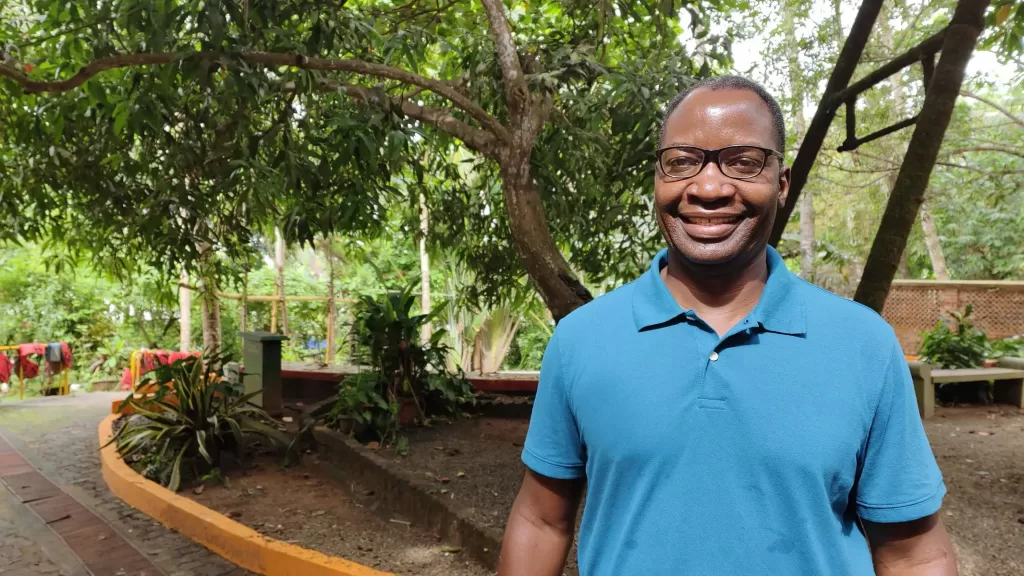
Archford Kiwiti – Zimbabwe – 54
Stigma, discrimination, and lack of opportunity for people with disabilities in Zimbabwean society.
Born with a physical disability, Archford was considered a “crippled child” and placed in a rehabilitation home, experiencing exclusion firsthand. He founded the Zimbabwe Anti Bullying society (ZABS) to provide assistive technologies, advocate for inclusive policies, run public awareness campaigns, and build accessible infrastructure.
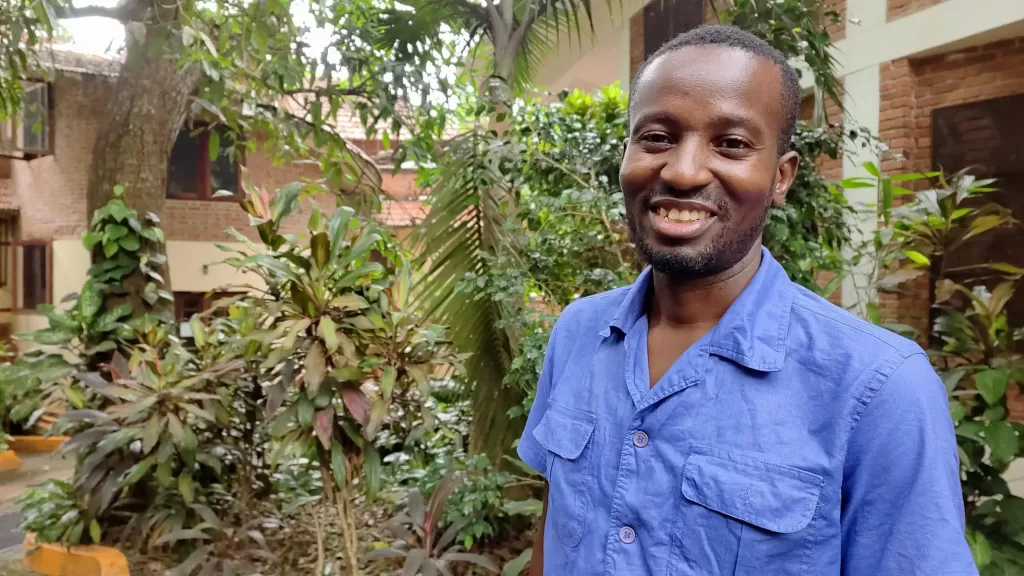
Buthelezi Kagwa – Malawi – 36
Low agricultural yields, poverty, malnutrition, and effects of climate change.
Growing up, his family struggled with farming and los- ing crops to drought until his father started irrigating, leading to better yields. Drawing on this experience, his project engages youth and women in irrigation farming and distribution of certified seed as a loan to increase income and improve nutrition.
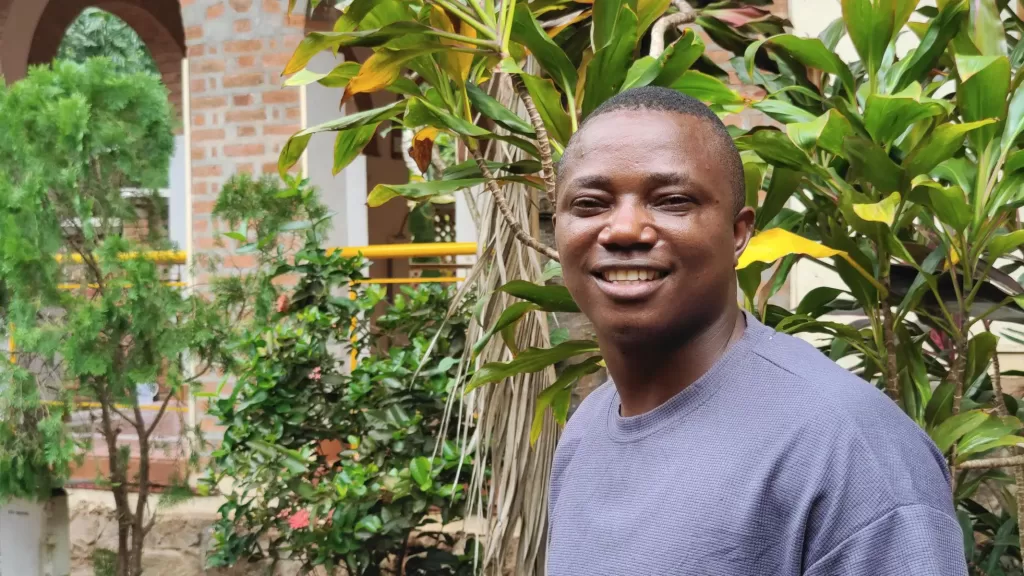
Elie Mastaki – DR Congo – 36
Conflict, displacement, and extreme poverty fueled by political manipulation, land disputes, and ethnic tensions.
Elie was born and raised in Kivu, a region deeply affected by ongoing conflict. Having personally experienced the hardships caused by violence and instability, he is driven to work for peace. His project promotes conflict resolution and peacebuilding by empowering youth through entrepreneurship training and facilitated discussion groups that encourage understanding and positive social change.
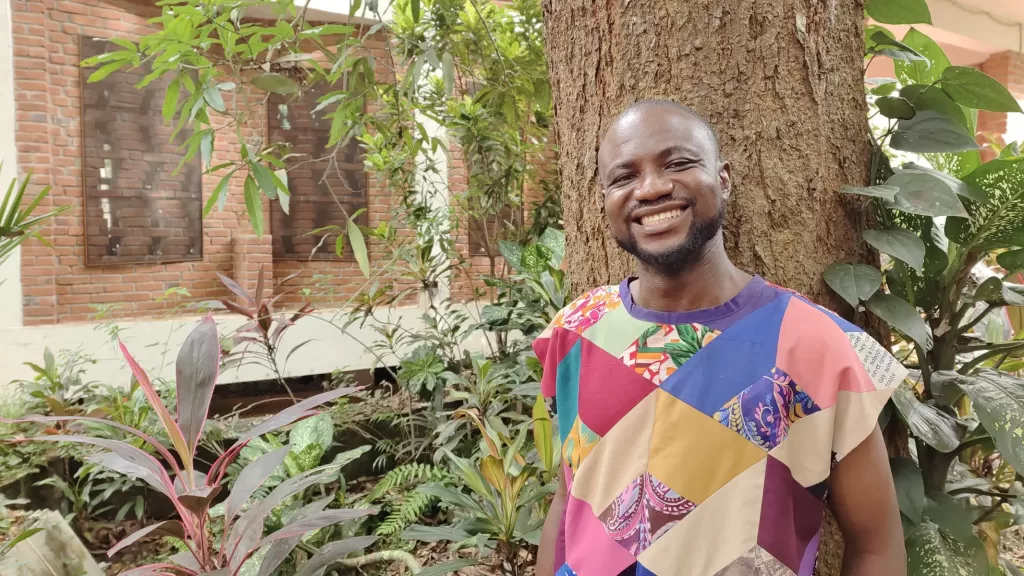
Emmanuel Adebayo – Nigeria – 31
Environmental pollution from textile waste and lack of access to educational materials for underprivileged children.
Having faced similar challenges as a child, Emmanuel saw an opportunity to address both issues. His project involves a textile waste collection drive, diverting tons of fabric waste from landfill/burning, and providing educational materials for identified students in need.
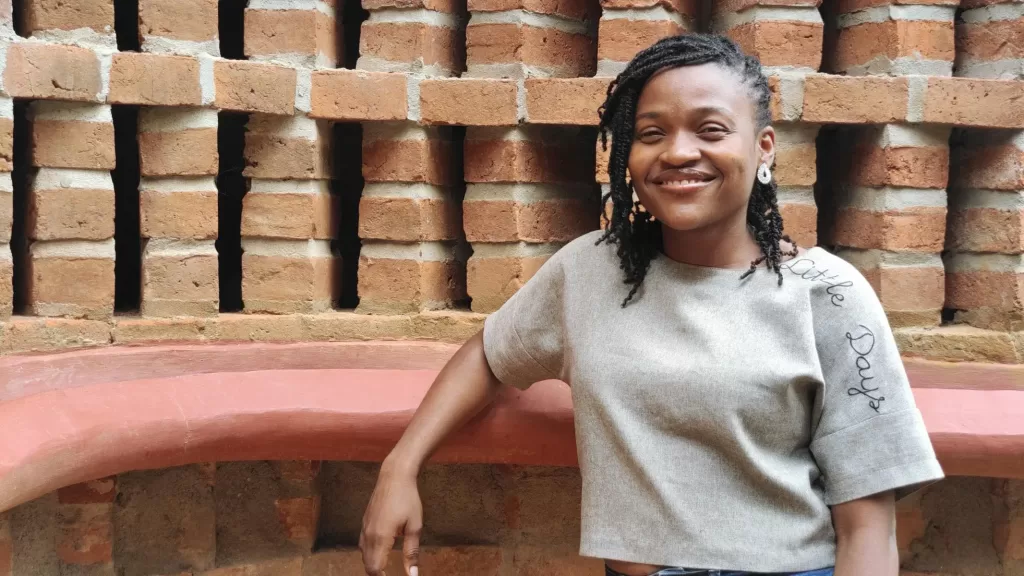
Esther Oke – Nigeria – 25
Lack of access to technical, vocational, and entrepreneurship skills for young girls in public/low-cost schools.
Growing up in a poor rural community and dropping out of university due to financial struggles, Esther understood the barriers to education and opportunities. She co-founded an organization providing vocational training and plans mobile TVET training to empower girls with skills to fund their edu-cation or careers.
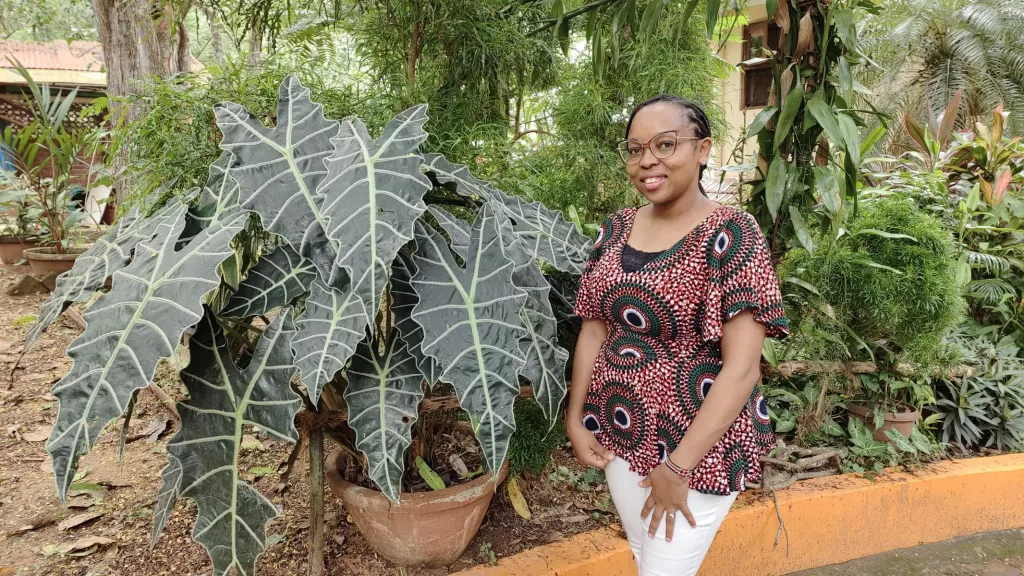
Faith Siele – Kenya – 38
Economic disempowerment among women, particularly in marginalized communities like the Maasai, exacerbated by drought.
Faith’s project is driven by the potential to empower women economically. She is establishing a tree nursery with drought-resistant crops like aloes and dragon fruit, and plans to train women as ‘out growers’ or partners, engaging community leaders to ensure sustainable outcomes.
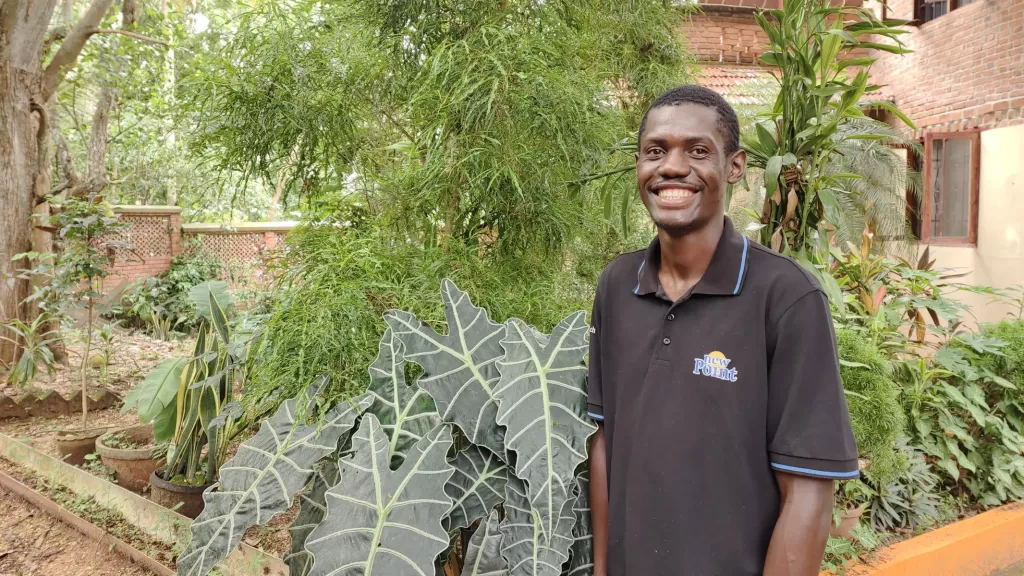
Gilbert Tafara Rupere – Zimbabwe – 27
Environmental degradation (water crisis), unemployment, and limited educational/economic alternatives in rural communities.
Witnessing his father lose land because traditional farming was failing, sparked Gilbert’s interest in sustainable practices. He is establishing a community center for self-designed learning, promoting permaculture practices, and fostering entrepreneurship to empower community members to solve local problems sustainably.
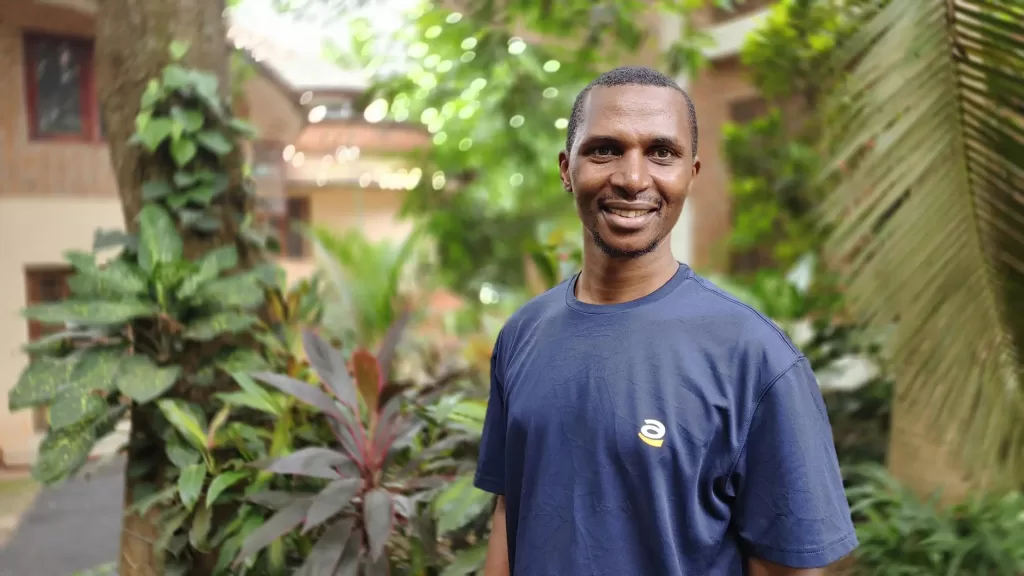
Justus Muhwezi – Uganda – 43
The intertwined problems of hunger, malnutrition, and high rates of school dropouts in his community, driven by poverty and limited access to land.
Justus grew up in the very community he now seeks to serve, where he witnessed firsthand the harsh effects of poverty and illiteracy-especially when his own siblings had to leave school so he could be educated. Motivated by this experience and a deep sense of responsibility, he is establishing a community skills training center to equip vulnerable young adults and women with practical vocational and entrepreneurial skills for a more selfreliant future.
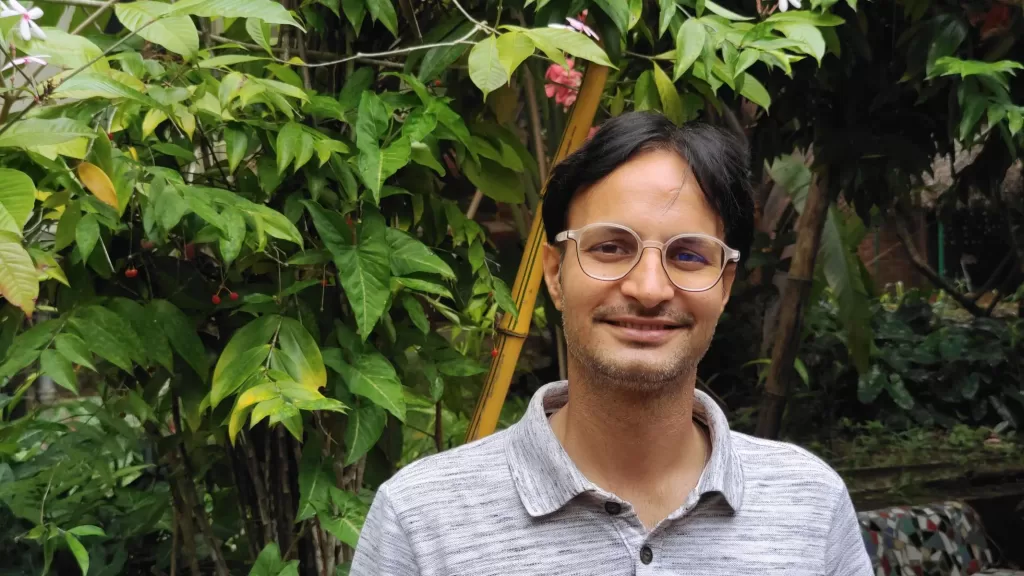
Manish Kumar – India –33
Learning gaps, lack of scientific temparament and social/emotional development and limited community engagement in education in rural areas.
Lack of interactive, compassionate, and experiential education kept him from pursuing his dream subjects and career. This drove Manish to work with underprivileged communities, creating engaging, activity-based learning spaces that focus on academics and life skills. He aims to involve children, adolescents, adults, and parents to build confidence, a culture of learning, and a more compassionate society.
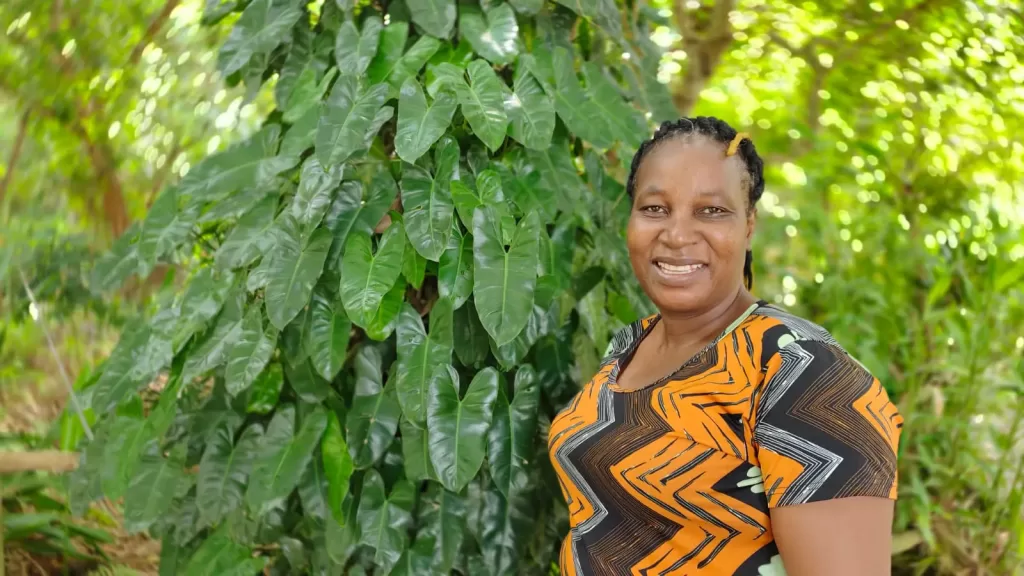
Memory Siyapiya – Zimbabwe – 49.
Youth unemployment, poverty, drug abuse, and crime among orphans, vulnerable, and disadvantaged young people.
Inspired by her tailor mother and years of working with youth, she saw the critical needs of disadvantaged young people. She founded Young Generations, a registered NGO, to provide vocational skills training (like clothing, carpentry, welding) and life skills to empower youth towards employment and independent lives.
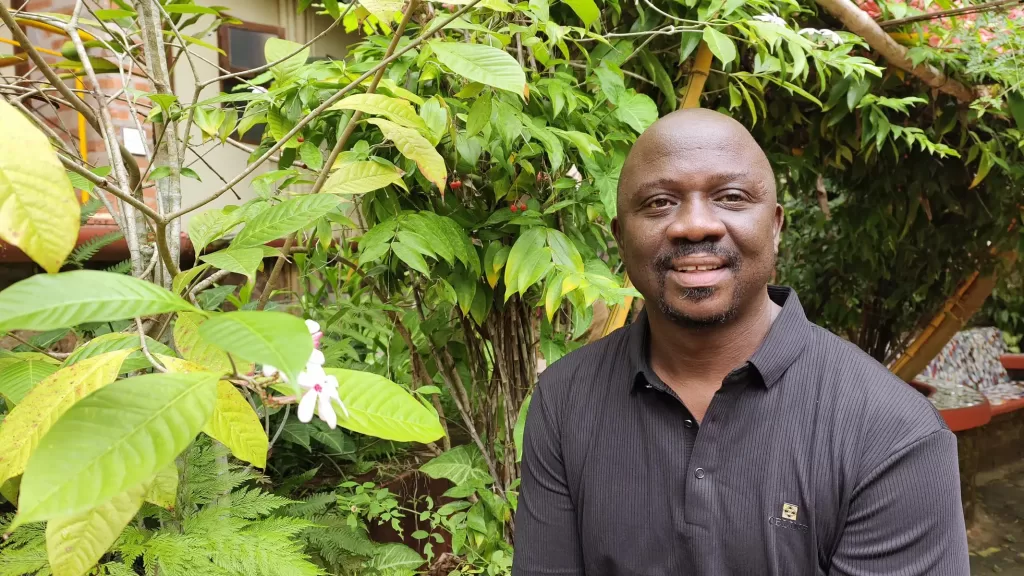
Mitchell Browne – Liberia – 45
Cycle of poverty, illiteracy, and marginalization among vulnerable and forest-dependent communities.
Surviving civil war, displacement, and losing parents, Mitchell was overlooked for opportunities due to lack of computer skills. He founded Rural Initiative of Sustainable Empowerment (RISE) to empowers vulnerable communities in Liberia. The goal is to break cycles of poverty through education, advocacy, economic empowerment, and alternative livelihoods for forest- dependent populations.
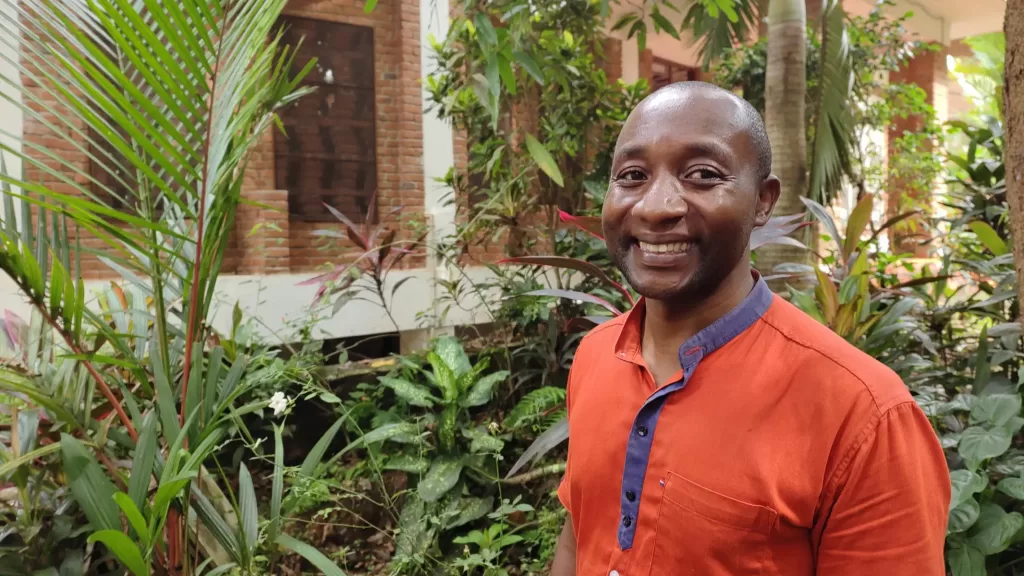
Moris Muhindo – Uganda – 42
Hunger, malnutrition, and school dropouts due to poverty and land shortage in his community.
Born and raised in the community, Moris experienced these challenges and saw them impacting his students as a teacher. His project promotes vertical gardening among families as a simple, effective solution to increase food availability, improve nutrition, and reduce hunger-driven school dropouts.
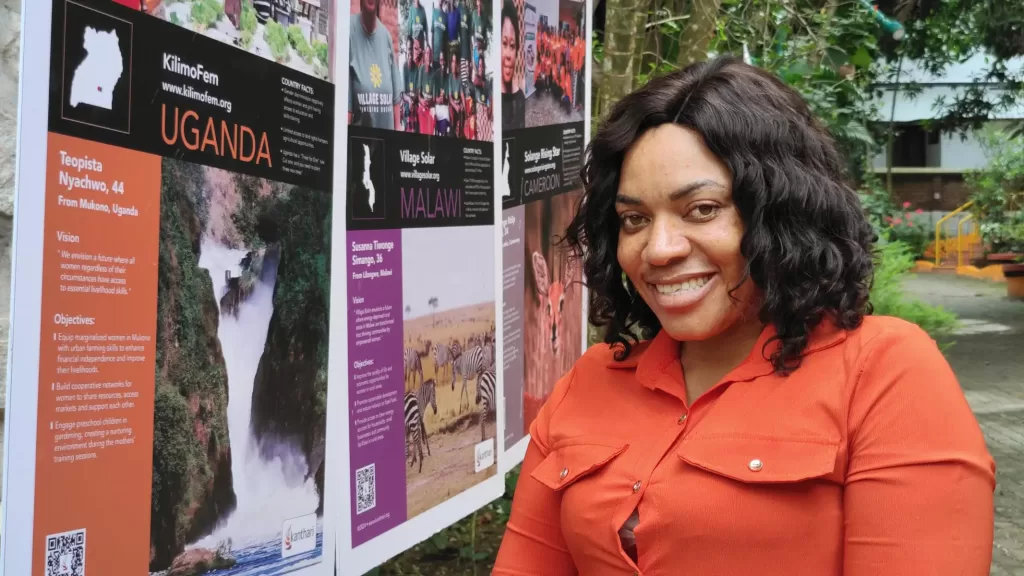
Nyasha Munetsi – Zimbabwe – 39
Gender Based Violence (GBV) and teenage pregnancies.
As a survivor of GBV herself who witnessed her mother’s abuse and experienced violence, Nyasha understands the devastating effects firsthand. As a midwife, she also sees teenage pregnancy issues.
She founded Speak Out Voice It for support groups, empowerment skills training, and programs addressing teenage pregnancies.
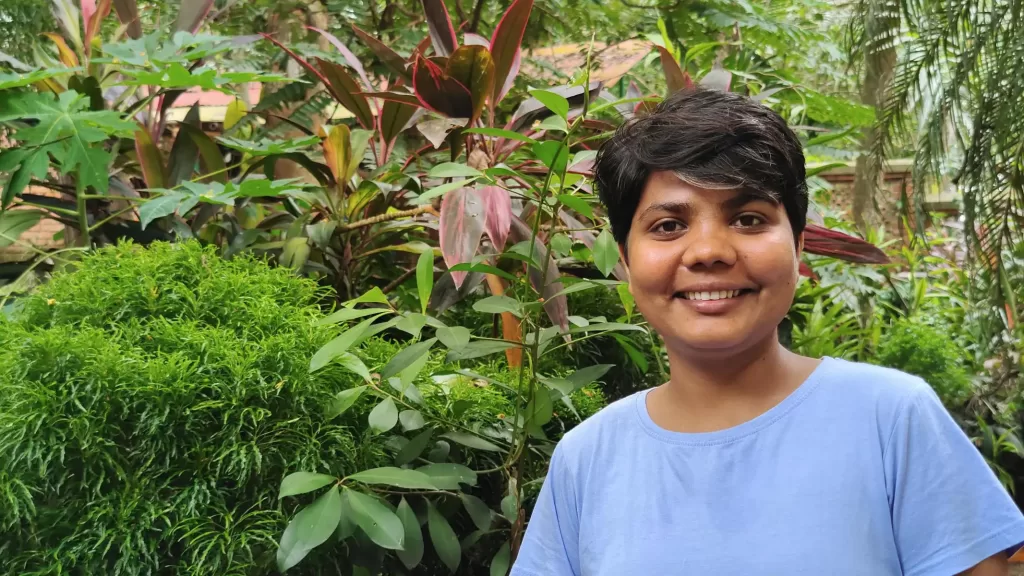
Pranali Chikte – India – 25
Urban & rural transportation challenges, pollution, and lack of healthy, affordable mobility options.
Growing up in a polluted mining area and using a bicycle for transport shaped her perspective. At 21, Pranali cycled 25,000 kms through India. Her project promotes cycling as an inclusive, practical, low-cost, healthy, and ecofriendly alternative for daily transportation to improve wellbeing and sustainability. Additionally she aims to educate people about cycling in all aspects -from basic riding skills to cycle maintenance, safety, and sustainable mobility practices.
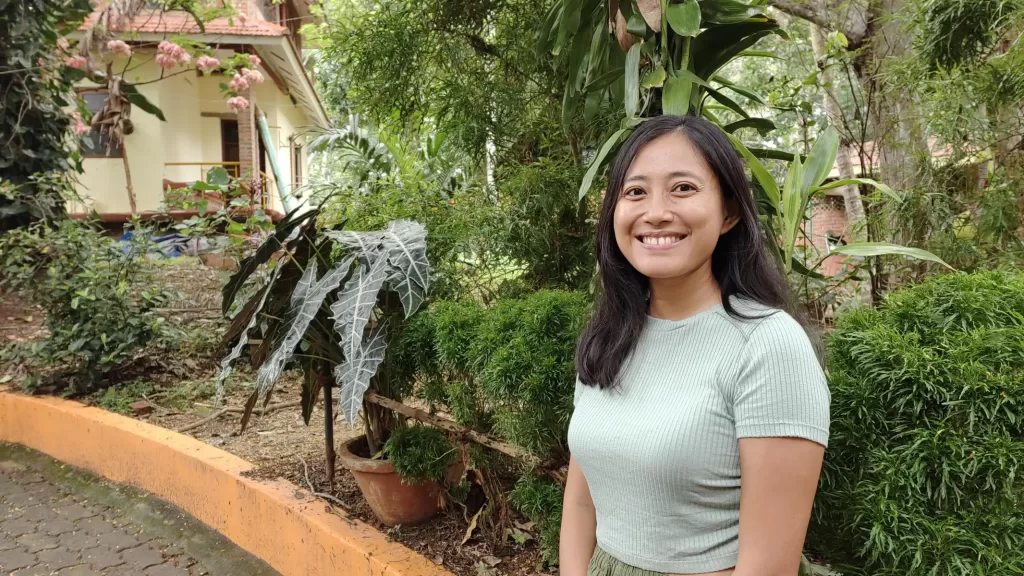
Putri Ika Novita Wati – Indonesia – 38
Land degradation from unsustainable farming, low in- come and challenging living conditions for farmers in Indonesia.
Born to a modest family and witnessing sustainable practices abroad inspired Putri to bring these home. She co-founded Ecotica, launching a farmland restoration project (Regen) using a combination of sustainable development models – empowering local farmers, revitalizing degraded land, and improving rural livelihoods.
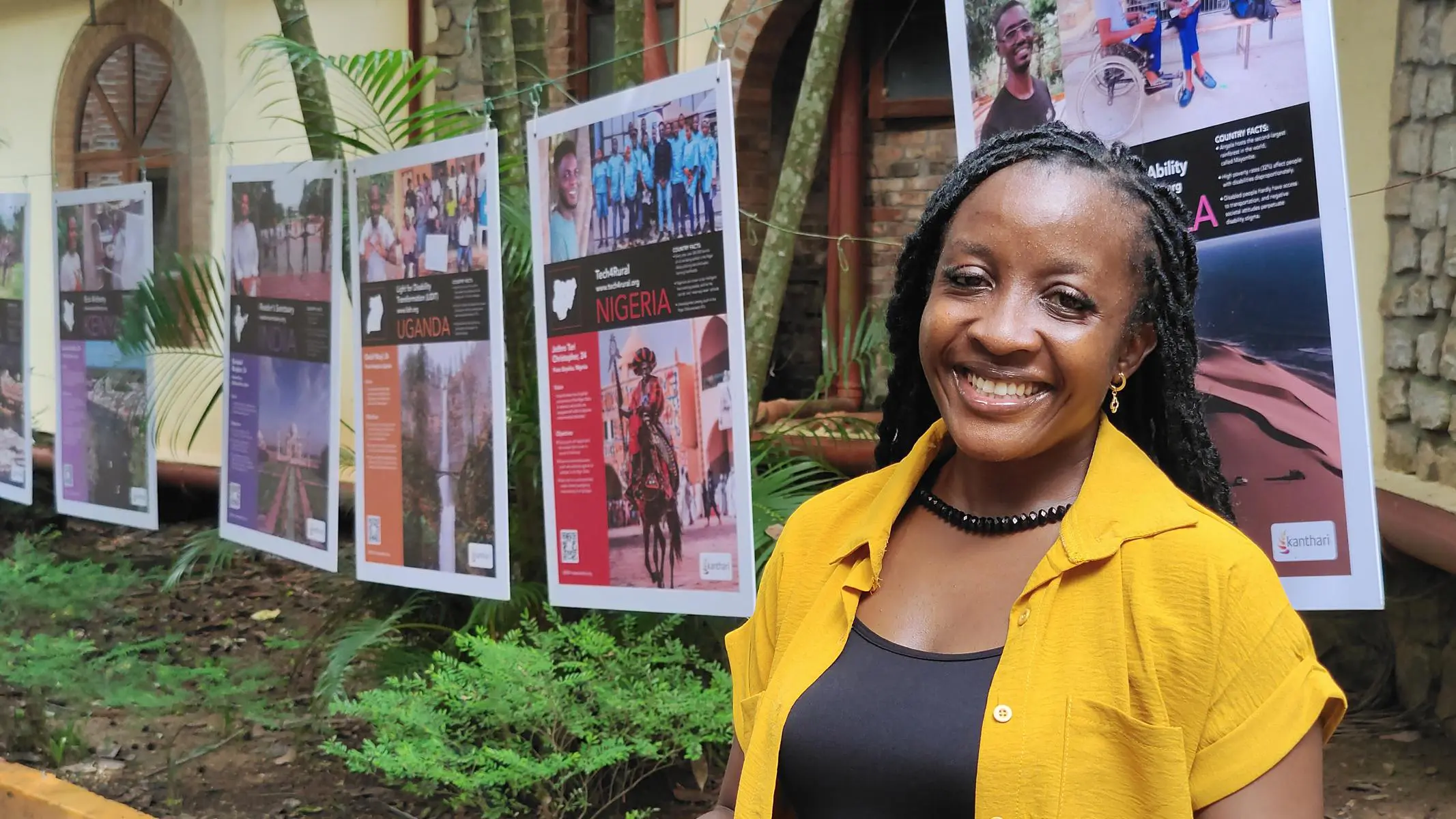
Rita Bih Fon – Cameroon – 33
Distress and challenges faced by internally displaced teenage mothers due to armed conflict.
Drawing on her own past experiences, Rita is actively engaged in supporting this vulnerable group. Her Safe Haven project aims to empower these teen mothers with basic entrepreneurial skills, business idea development, and employability training to help them rebuild their lives and improve their family incomes and livelihoods.
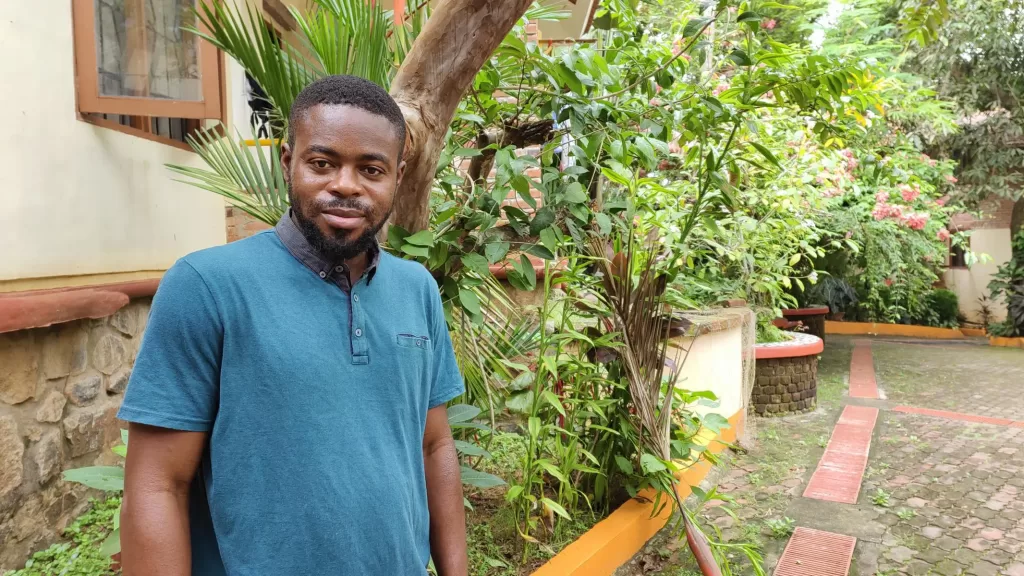
Samuel Arkorful – Ghana – 40
Poverty, limited opportunities, and forced migration/ exploitation of youth, especially young women, in Northern Ghana.
Samuel experienced poverty, hunger, and saw friends/ sisters suffer from lack of opportunity and migration’s dangers. His ‘Breaking the Cycle’ Initiative provides vocational/life skills training (farming, ICT), promotes entrepreneurship, conducts awareness on harmful practices, and supports returnees to create opportunities to reduce migration.
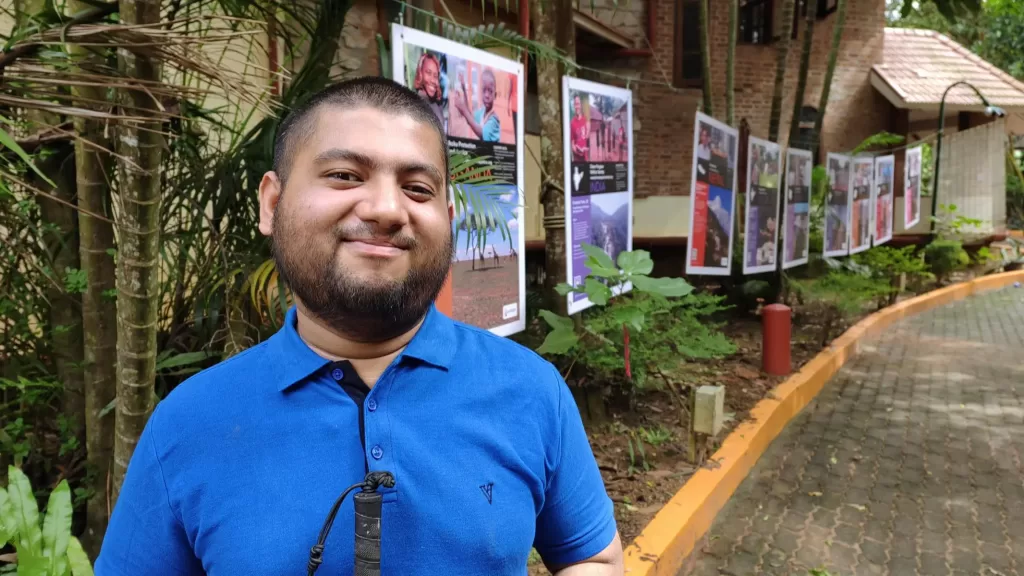
Somnath – India – 26
Challenges faced by visually impaired individuals in achieving independence in daily life, travel, and self- care.
Living with visual impairment due to Laurence-Moon- Bardet-Biedl Syndrome, Somnath has experienced these struggles firsthand. He wants to provide training and guidance, leveraging technology and acquiring leadership and entrepreneurial skills to build a supportive initiative
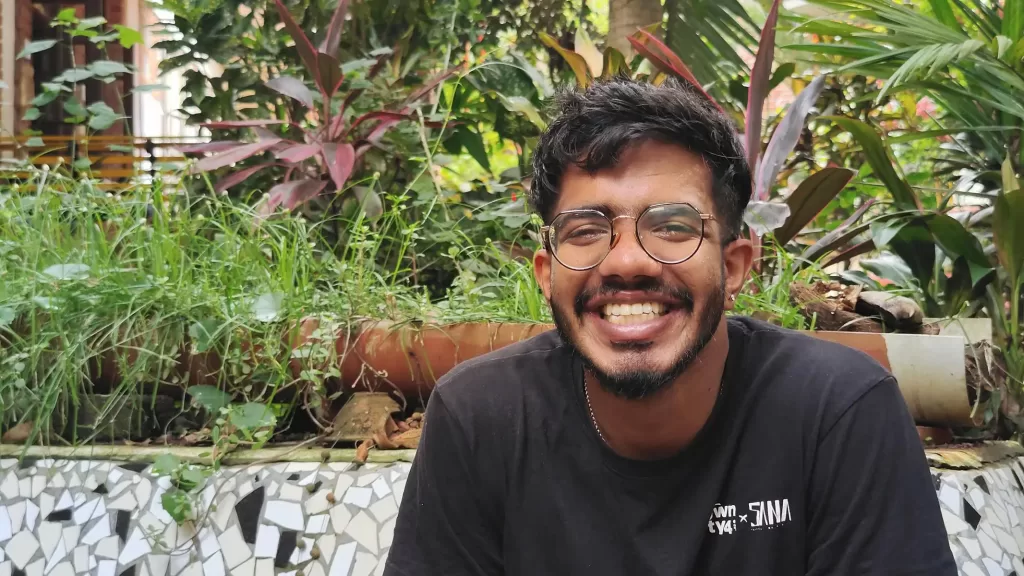
Yadeendar (Tittu) – India – 22
Discrimination, poor education quality, and lack of empowerment among tribal and general youth/ children.
Working with tribal communities, Tittu is driven to ad- dress their challenges. His project uses art and education initiatives (like theatre, film) to empower communities, educate students to become future change makers, and raise awareness on societal issues to ensure sustainability and impact.
